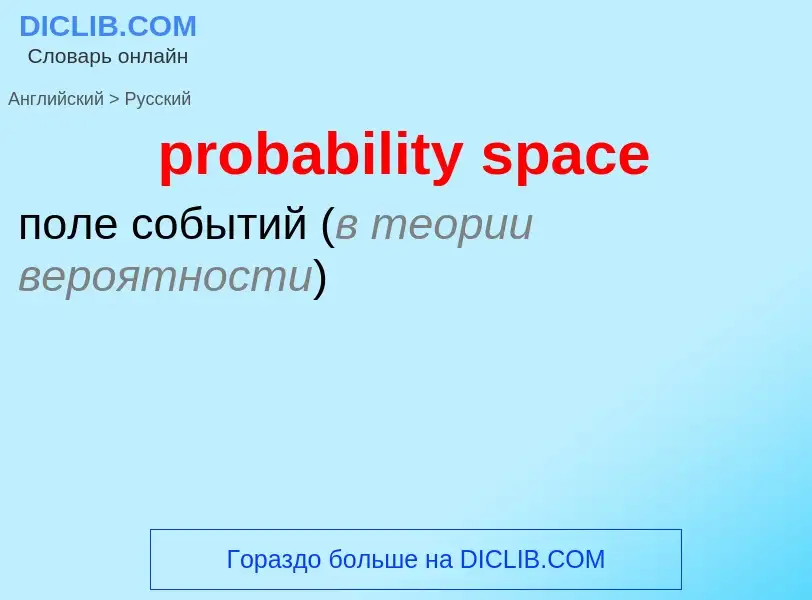Übersetzung und Analyse von Wörtern durch künstliche Intelligenz ChatGPT
Auf dieser Seite erhalten Sie eine detaillierte Analyse eines Wortes oder einer Phrase mithilfe der besten heute verfügbaren Technologie der künstlichen Intelligenz:
- wie das Wort verwendet wird
- Häufigkeit der Nutzung
- es wird häufiger in mündlicher oder schriftlicher Rede verwendet
- Wortübersetzungsoptionen
- Anwendungsbeispiele (mehrere Phrasen mit Übersetzung)
- Etymologie
probability space - Übersetzung nach russisch
математика
поле вероятностей
Definition
Wikipedia
In probability theory, a probability space or a probability triple is a mathematical construct that provides a formal model of a random process or "experiment". For example, one can define a probability space which models the throwing of a die.
A probability space consists of three elements:
- A sample space, , which is the set of all possible outcomes.
- An event space, which is a set of events, , an event being a set of outcomes in the sample space.
- A probability function, , which assigns each event in the event space a probability, which is a number between 0 and 1.
In order to provide a sensible model of probability, these elements must satisfy a number of axioms, detailed in this article.
In the example of the throw of a standard die, we would take the sample space to be . For the event space, we could simply use the set of all subsets of the sample space, which would then contain simple events such as ("the die lands on 5"), as well as complex events such as ("the die lands on an even number"). Finally, for the probability function, we would map each event to the number of outcomes in that event divided by 6 – so for example, would be mapped to , and would be mapped to .
When an experiment is conducted, we imagine that "nature" "selects" a single outcome, , from the sample space . All the events in the event space that contain the selected outcome are said to "have occurred". This "selection" happens in such a way that if the experiment were repeated many times, the number of occurrences of each event, as a fraction of the total number of experiments, would most likely tend towards the probability assigned to that event by the probability function .
The Soviet mathematician Andrey Kolmogorov introduced the notion of probability space, together with other axioms of probability, in the 1930s. In modern probability theory there are a number of alternative approaches for axiomatization – for example, algebra of random variables.

